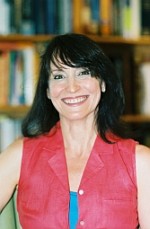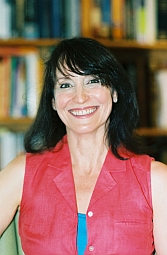

We all think we know what success is. There are certainly enough definitions of it and opinions about how to succeed IN life. But, how can we truly succeed AT life?
We can succeed AT life by being true to ourselves. It’s not always as simple or easy to do this as we might imagine or wish; but maybe that’s already been your experience. For one thing, as we move through our life, we have a trail of expectations following us, those expectations imposed on us by others, and those we erroneously impose on ourselves. We walk in a wake of negativity as a result, because we don’t know how or feel confident enough to be true to ourselves after years of others’ influences swarming around us, attempting to tell us what to think, feel, say, and do.
Ernest Holmes wrote an interesting passage about negativity in his book, The Science of Mind. But it was what came at the end of that passage that got me thinking. Here it is: “Thought which is built upon a realization of the Divine Presence has the power to neutralize negative thought, to erase it, just as light has the power to overcome darkness; not by combating darkness, but by being exactly what it is: LIGHT.”
Light overcomes darkness “not by combating darkness, but by being exactly what it is: LIGHT.” What happens when we are not our true selves or true to ourselves is we engage in an inner battle, though we may also battle with others who, for their own reasons, attempt to deter us from being true to ourselves. With so much focus on battles, little energy is given to the real matter: being ourselves and evolving in the way and timing appropriate and fulfilling for us. You cannot live YOUR purpose (much less your life) if you’re living according to someone else’s expectations that you are not in alignment with.
Anthropologist Margaret Mead had a particular mindset when her daughter was born. She said she couldn’t wait to see who this person was. She didn’t say she couldn’t wait to mold her daughter into who she wanted the girl to become. Big difference. Most of us did not have the benefit of such refreshing open-mindedness in the environment where we grew, learned, and developed. We were not, in general, provided with a nurturing space to discover and determine who we are, so much as we were told, by so many, who we were expected to become. How often we see others (or have it as our own experience) who follow the wishes or expectations of one or more others, rather than follow what’s in their heart and spirit. It’s not a pretty picture when that happens.
One example comes to mind of someone I know who wanted to be a musician but his parents wanted him to be a doctor. So he slogged through all the years needed to put M.D. behind his name. Yes, he learned useful things, but he had no passion for his practice. A sad, serious side-effect was that he lost compassion for his patients. He did what was expected of him, barely. And, he was miserable. He turned to drugs and other not-in-balance practices to buffer him from the negativity and restriction he felt he couldn’t escape. Whether or not he would have become a professional musician is not the point. What might have happened had he not succumbed to his parents’ expectations? We’ll never know. But there is a chance that he may have found his way to a life that fulfills him, rather than one he has to numb himself against.
In that and similar situations, one result is clear: Everyone whose life is touched in any way by someone not being true to themselves becomes, in some measure, a hostage to expectations and outcomes; and the effects and outcomes don’t cease after the first time this happens. An ongoing ripple effect is created. Many would look at that man’s life and see only that he’s a doctor, with a doctor’s income and what it allows him to buy and get away with, and call him a success. Now that you know some of the real story, you may hesitate to assign that label to him.
How much of the negativity we experience is a result of not being true to ourselves? Think about the implications of that for a moment. What are you doing and who are you doing it for? If your why is one you have head and heart alignment with, no problem. If you don’t have that alignment, you have negative thoughts buzzing like bees in your mental, emotional, and spiritual life, which, of course, can affect your physical body. It definitely affects your energy and what you attract into your life as your experience, as well as how you relate to yourself, others, and your life. The proverbial vicious circle gets created.
Whatever you’ve been indoctrinated or convinced to believe about success, the truth is that real success is an inner experience—a feeling. When you find what makes you happy and fulfilled in ways appropriate for you, and this in turn, causes you to spread some good into your circle or world, you are a success. Maybe you have enough material things in your life that causes others to call you a success and maybe you don’t. Should their opinions matter? Do you really want them to? Or do you want to put the measure of success where it belongs—in your hands? It’s a good practice, one you’ll appreciate.
Practice makes progress.
© Joyce L. Shafer
You are welcome to use this article in your newsletter or on your blog/website as long as you use my complete bio with it.
Joyce L. Shafer is a Life Empowerment Coach dedicated to helping people feel, be, and live their true inner power. She’s author of “I Don’t Want to be Your Guru, But I Have Something to Say” and other books/e-books, and publishes a free weekly online newsletter that offers empowering articles. See all that’s offered by Joyce and on her site at http://stateofappreciation.weebly.com

Leave a Reply